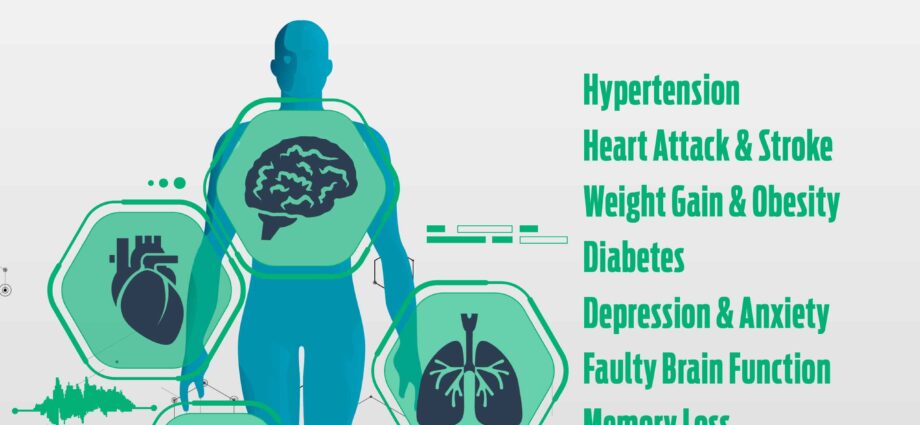8 hours in the arms of Morpheus is an unaffordable luxury for many of us, because of which many have health problems.
Chronic lack of sleep has serious consequences for the human body. What are the risks when you save money on sleep again? Not only beauty, but also health, scientists are sure.
The beauty industry regularly presents new items that “erase the traces of fatigue”. Unfortunately, no grooming or foundation can substitute for proper sleep. You may not notice changes in your own appearance, but people around you instantly “read” an unhealthy signal.
Scientists at the Karolinska Institute in Stockholm banned volunteers from sleeping more than four hours a night for two days. In the morning they photographed their “test subjects”. Then they showed random residents of Stockholm pictures of sleeping people and photographs of participants in the experiment. The result was predictable: people who did not get a good night’s sleep seemed less attractive and unhealthy to others.
And it’s not just about the circles under the eyes. Lack of sleep affects the overall condition of the skin. When we are awake, our facial skin is “focused” on protecting itself from aggressive environments. She is engaged in internal work during sleep: cellular respiration improves, supporting tissues are restored and collagen production is enhanced, which prevents the appearance of wrinkles.
Lack of sleep is stressful for the body. And in conditions of danger, he makes a decision that will not please you: it slows down the metabolism. Low metabolic rate – the risk of gaining extra pounds.
Lack of sleep stimulates appetite. Scientists from King’s College London have calculated that because of a sleepless night, the next day we eat 385 extra kilocalories. About the same amount is contained in a medium serving of fries. Lack of sleep disrupts the balance of the hormones ghrelin and leptin, the former controlling hunger and the latter feeling full. In addition, sleepy people are more inclined to “reward” themselves with goodies.
In addition to aesthetic problems, sleep deficit provokes systemic disorders in the body. Scientific Report cites a study that links lack of sleep and the risk of atherosclerosis: in chronically sleep deprived people, the genes responsible for transporting cholesterol work half-heartedly.
A group of scientists from Boston found that people who sleep no more than five hours have decreased insulin sensitivity, which in the long term can lead to diabetes.
It has been proven that sleep deficit reduces the body’s immune response to various kinds of stimuli. Some studies have linked lack of sleep and the rapid development of depression and increased blood pressure.
But most of all, the brain suffers from chronic lack of sleep. Not so long ago, the work of scientists from the Polytechnic University of Italy was widely cited. Researchers have shown that people with poor sleep disrupt the natural mechanism of “cleaning” the brain. Special cells – microglia – destroy damaged neurons during sleep. Astrocytes destroy unused synoptic connections, thereby “optimizing” the brain. If you don’t get enough sleep, this work begins to be aggressive – microglia and astrocytes destroy healthy cells.
This affects cognitive abilities: information is absorbed worse, memory fails, reaction slows down. Sometimes not the most pleasant features even appear. For example, scientists at the University of Zurich have found that sleep deficit increases the propensity to make risky decisions.
The saddest thing is that you yourself may not notice these changes, therefore, you will not be able to react in a timely manner. A group of scientists from the University of Pennsylvania and the University of Washington have shown that volunteers who have been artificially creating sleep problems show a decrease in cognitive performance, but they cannot subjectively track it. It may happen that you sacrifice sleep for the sake of work, but at the same time you do not even notice that objectively you are doing this work worse.
Thus, chronic lack of sleep may well claim to be the main killer of your beauty and health. How to deal with it?
1. Come to terms with the idea that you can’t change all the affairs.
2. Develop an optimal daily routine and try to stick to it. There is an opinion that it is not so important how much you sleep, it is much more important – when. Six hours of sleep from 22:00 to 04:00 will be more effective than nine hours from 02:00 to 11:00.
3. Divide the sleeping area and the work area in the apartment. Scientists advise using the bedroom only for sleeping. A TV, for example, will be superfluous there. You should create optimal conditions for falling asleep. The room should be as dark as possible, quiet and cool enough.
4. Physical activity is good for normalizing sleep and overeating is bad. According to some studies, the activity of the digestive system slows down around seven to eight o’clock in the evening. A hearty dinner and late meals stimulate the stomach and intestines, making it difficult for the body to fully rest.
5. In the afternoon, people with sleep problems are advised to avoid caffeinated drinks. Everyone else is not advised to get involved in watching TV and “sticking” into gadgets an hour before bedtime.










